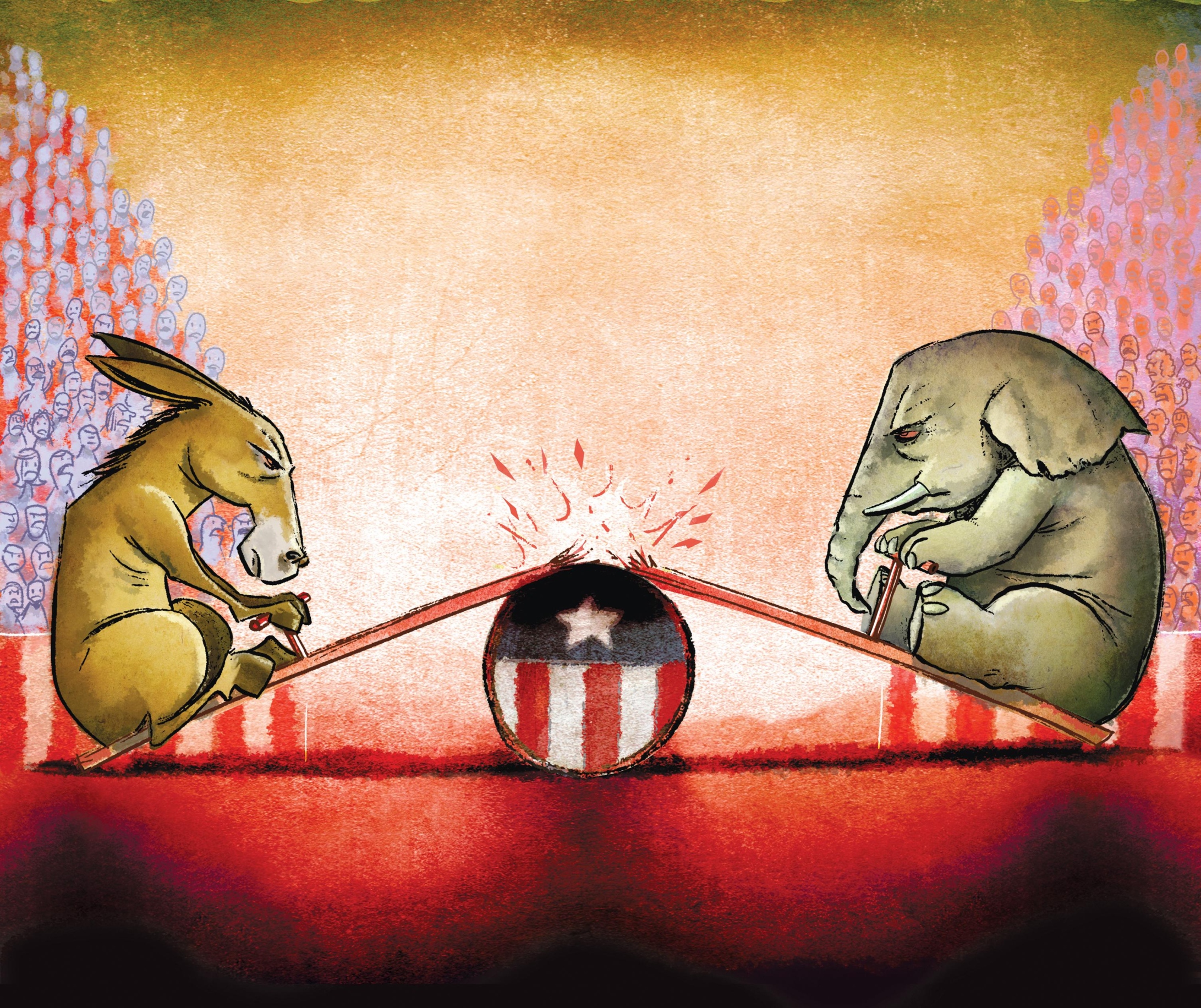By PATRICK MAROUN
STAFF WRITER

After more than 200 years, George Washington’s premonition has come to fruition. Our country is divided nearly in half, and the political polarization and partisan power politics that dominate the American political landscape make it nearly impossible for any substantive legislation to survive the congressional civil war. The fact that the Patient Protection and Affordable Care Act (Obamacare) managed to make it to President Obama’s desk, whether you agree with the law or not, is an indisputable miracle.
Patrick Doherty, FCRH ‘15 said he disagrees.
“While I think the two-party system is limited in terms of viewpoints and differing opinion […]he system does create a certain efficiency […] that our government strives off of,” he said.
There is some truth to this sentiment in that it makes it easy to determine a majority power in congressional bodies without the added step of coalition forming, but the unfortunate side effect of this is intensified partisanship and the ineffective governing it creates.
In 1796, President Washington issued what has come to be known as his “Farewell Address,” wherein he warned the American people of the dangers of “mak[ing] the public administration the mirror of the ill- concerted and incongruous projects of faction.”
In recent years, these “projects of faction” have eroded the unity of our country and instigated an ideological battle between renewed nativism and the perceived “outsiders” and their “sympathizers.” Mitt Romney aptly illustrated this battle just the other day, when he attributed the defeat handed to him by President Obama to the “gifts” the Obama Administration made to “the African-American community, the Hispanic community and young people” during his first term in office.
This counterproductive polarization in American politics is a product of our two-party system. It is nearly impossible to return to the party-less system that President Washington would advocate, but it would be equally difficult to establish a viable three- or multi-party system considering how ingrained our current system is in the minds of Americans. In the words of Macbeth, we are “in blood stepped so far that should [we] wade no more,/Returning were as tedious as go o’er.”
According to Fordham political science professor José Aleman, “Our political system is currently not well served by two parties that do not substantively differ on many issues, yet fail to represent the wishes of a majority of the people.
“[We] end up with a political system where many citizens correctly perceive their vote matters little,” he said. “If we had more parties, or even just a viable third party, the level of representation our fellow citizens enjoy and even the quality of the policies they receive would probably improve.”
When I first took Professor Aleman’s class on Comparative Politics last spring, I saw little issue with a two-party system, but after the many studies and topics we discussed, I realized some of the unfortunate ramifications of our split system. We cannot continue to comply with a system that leaves us ill-represented. The problem is, at this point, most Americans are either ill-informed about the realities of our political system, or too disenchanted with it to continue caring.
“It is often shocking to me that we, as citizens of a nation with a proud heritage of great thinkers and public servants, are presented each year with a choice between what many feel to be simply the ‘lesser of two evils,’” Dan Carter, FCRH ’14, said. Americans, instead of having the agency to vote for whom they most closely align with politically, are forced to vote against whom they most disagree. This unfortunate political reality has been the death of American democracy.
Americans must go to work if we are to save our political souls. This means that we must renew our interest and improve our knowledge. We must reject party politics and instead vote based on our ideals. We must get involved and spearhead the political revolution of our day.
Patrick Maroun, FCRH ’15, is a theology and political science major from Norwood, Mass.








































































































































































































